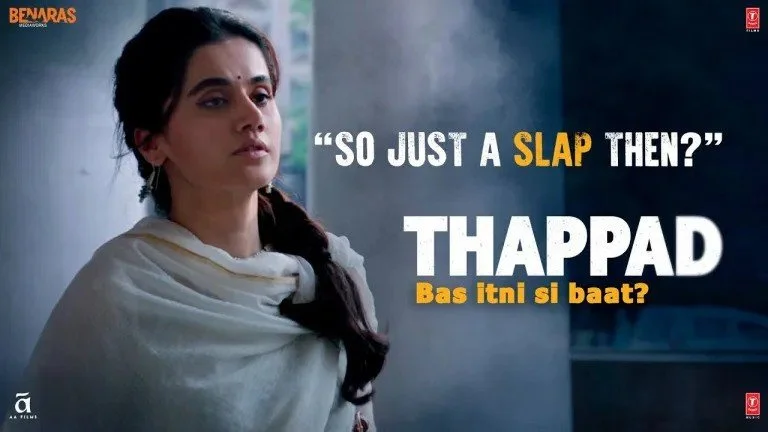Breaking the Silence: Domestic Violence in Our Communities and the Price of Staying Silent
The recent arrest of Sean "Diddy" Combs has reignited discussions around domestic violence and the prevalence of abuse, even within the most successful, high-profile relationships. As shocking as it may be for many to hear about someone as powerful and wealthy as Diddy being accused of such crimes, it's a stark reminder that domestic violence can happen to anyone. Abuse often hides behind closed doors for years, protected by power, money, or the societal stigma attached to victims. For South Asians in America, this story mirrors struggles in our own communities—where shame, honor, and fear of judgment keep many from leaving abusive relationships.
The Hidden Scars of South Asian Relationships: In many South Asian families, especially those that experienced arranged marriages, we grew up witnessing relationships where love wasn’t always the foundation. Some of our parents, thrust into marriages based on familial duty or societal pressure, modeled unhealthy dynamics that left long-lasting emotional scars. If we witnessed trauma, control, or abuse, those early lessons shape our adult romantic relationships. Often, we tolerate toxicity because it’s familiar—we’ve seen our mothers quietly endure or downplay their suffering.
The cycle of trauma becomes normalized, and when we face the same hardships as adults, we’re more likely to stay silent. This is not just about personal experience; it’s about how cultural norms reinforce the idea that a woman must bear hardship for the sake of her family’s honor.
The Weight of Shame and Stigma: One of the biggest reasons domestic violence continues unchecked in South Asian communities is the overwhelming stigma surrounding divorce. Divorce is seen not just as a personal failure but as a mark against the entire family. For many women, especially those in abusive marriages, the idea of leaving isn’t just about escaping violence—it’s about navigating the crushing societal shame that comes with ending a marriage.
In many South Asian communities, marriage is held up as the pinnacle of a woman's success. The idea of a "good marriage" equates to social status, family pride, and community respect. Divorce threatens all of that. For many families, the fear of being judged by the community, of having their reputation tarnished, and of facing gossip or exclusion often outweighs their concern for the woman’s safety or well-being.
The Role of Family Pressure: Parents can also be complicit in keeping women trapped in harmful situations. The pressure to maintain face in the community is immense, and families often fear that if their daughter divorces, it will reflect poorly on their values, making it difficult for her—or even her siblings—to find suitable partners in the future. This can lead to the heartbreaking scenario where parents side with the abuser, urging their daughter to stay in the marriage “for the sake of the family,” no matter how toxic or harmful the situation may be.
Why Remarriage is Still So Difficult: For South Asian women, the stigma doesn't end with divorce—it follows them into their next chapter. Remarrying after divorce is seen as a challenge, particularly for women. Even in more progressive South Asian circles in America, a divorced woman is often viewed as "damaged goods," and finding a partner who sees her as a whole, valuable individual, rather than as someone with baggage, can be difficult.
This stigma is especially pronounced in communities where arranged marriages are still common. Families of prospective grooms often prioritize women who have never been married before, believing that they are "pure" or more suitable for their sons. As a result, women in abusive marriages are faced with the impossible choice of staying in a violent, toxic situation or facing the social stigma of being divorced, with the added difficulty of finding a partner who is willing to accept them without judgment.
Domestic Violence in Bollywood: Bollywood, too, has had its share of domestic violence scandals and themes. In 2009, actor Shiney Ahuja was arrested for raping his domestic worker—a case that shocked the Indian film industry but also highlighted the prevalence of such abuse. On the screen, Bollywood films like Thappad (2020) have taken bold steps in depicting the realities of domestic violence. Thappad, in particular, shows how a single slap can unravel a relationship built on years of quiet submission, opening up conversations about what abuse really looks like. It isn’t just physical—it’s emotional, psychological, and social. Films like these are beginning to challenge long-standing notions about enduring suffering in silence, giving voice to women who might otherwise feel they have no way out.
A Path Forward: Empowerment and Education: As we witness these high-profile cases unfold, whether in Hollywood or in our own cultural sphere, it’s a reminder of Dr. Martin Luther King Jr.’s words: “The arc of the moral universe is long, but it bends toward justice.” P. Diddy, despite his wealth and status, will face the consequences of his actions, just as we must hold all abusers accountable, no matter their power.
For South Asians, the fight against domestic violence isn’t just about speaking out; it’s about changing the conversation around marriage, relationships, and family dynamics. We need to teach our children what healthy love looks like, foster open discussions about emotional well-being, and, most importantly, break the stigma surrounding divorce and abuse. By empowering our women to speak up and walk away from harmful situations, we’re creating a future where respect and love, not power and control, define our relationships.
Domestic violence knows no boundaries of wealth, power, or culture. In the wake of the P. Diddy arrest, we must reflect on our own communities. Are we creating environments where women feel safe to leave toxic relationships? Are we modeling healthy love for future generations? As we move forward, let’s make a conscious effort to build relationships rooted in mutual respect, kindness, and equality—and to support those who need the courage to step away from abuse.



